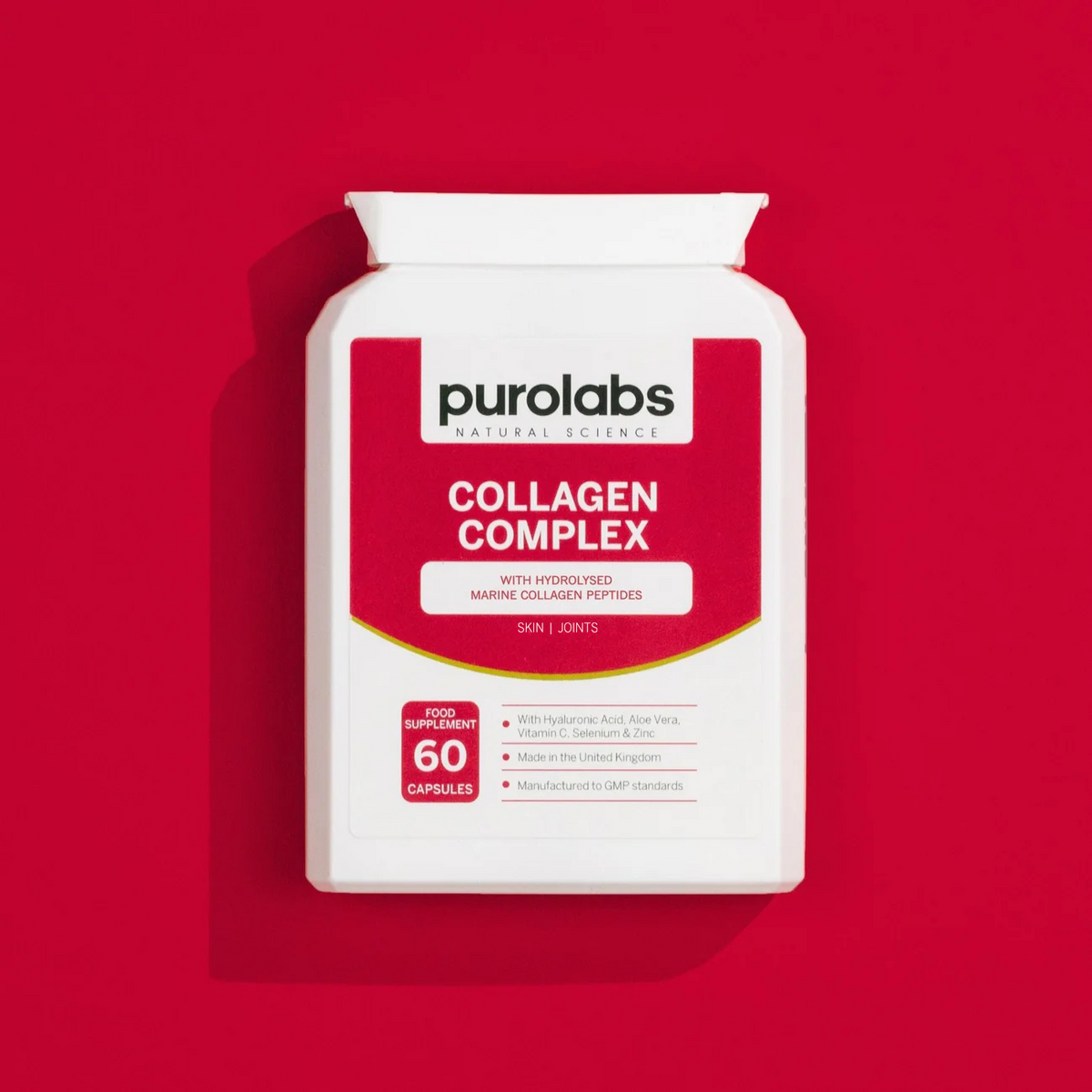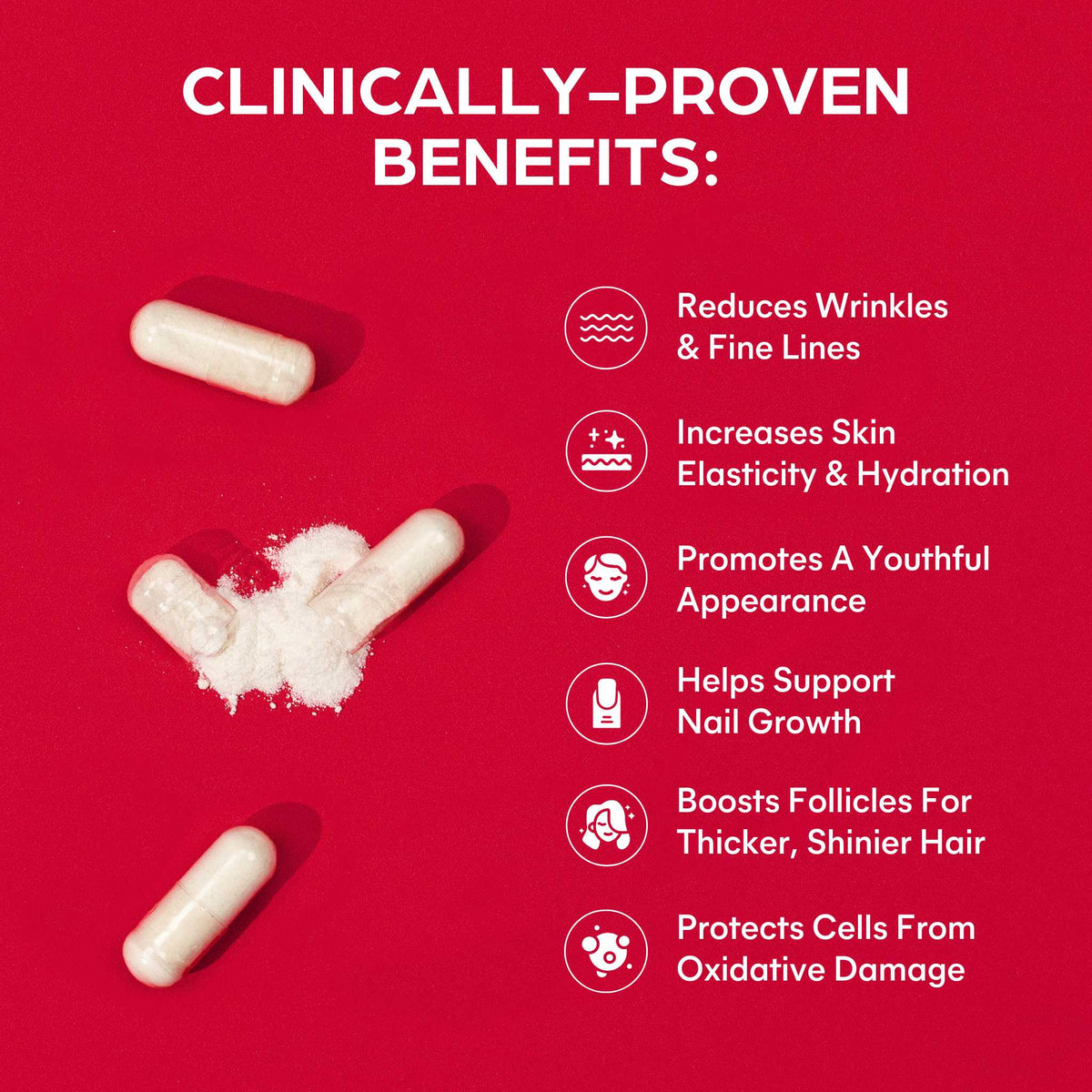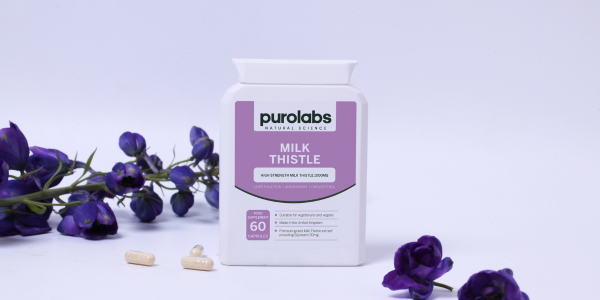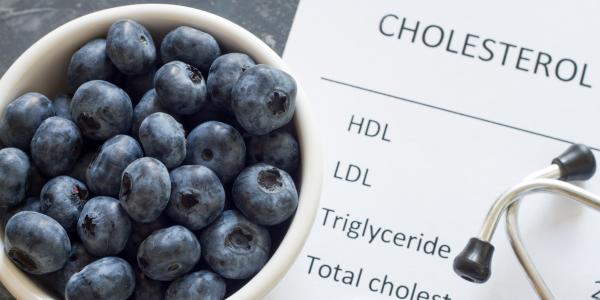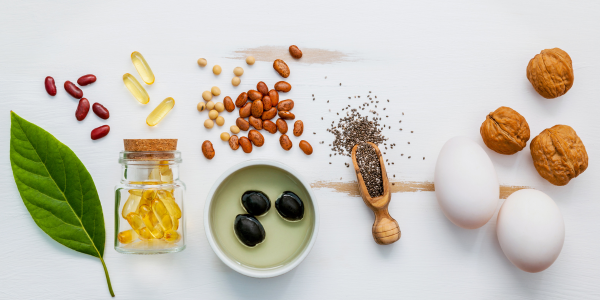Milk thistle is a great example of plant ingredients which have been used for centuries for its health benefits but have only been given the scientific credit it deserves in recent decades through published research.
Milk thistle has been used for medicinal therapy since the 16th century in Europe, and was commonly used for disease of the liver, gallbladder and spleen1. Stories can be traced back centuries for milk thistles use as a cure for snake bites.
Silymarin, is the active ingredient within milk thistle which gives the plant its array of health benefits. This potent antioxidant powerhouse of an ingredient is extracted from the dried fruit and seeds of the Marianum Plant.
Silymarin is also known as lady’s thistle, St Mary’s Thistle, Holy Thistle and variegated artichoke to name a few.
Milk thistle (and its active compound, silymarin) is native to southern Europe and the Mediterranean. What makes this ingredient so powerful is that it contains a beneficial and potent mix of flavonoids and polyphenols.
The benefits of flavonoids and polyphenols in particular have been studied well. This group of antioxidants:
- Helps to mop up inflammatory free radicals, which may reduce inflammatory disease.
- Has been shown to positively affect gut microbiome, and potentially reduce chronic conditions linked to gut health such as IBS and IBD
- May even play a role in skin-ageing and skin health. Its antioxidant capacities may help to support inflammatory skin conditions like acne, eczema and rosacea and even support overall skin health. Inflammatory free radicals impact our skin elasticity and ability to hold moisture, therefore a reduction of free radicals improves skin complexion and bounce.
Liver Health
The most commonly known health benefit of milk thistle is its liver promoting health benefits. Many people aren’t aware of the many health benefits of milk thistle, but many are aware that it has something to do with helping the liver to function optimally.
Millions of people around the world today take milk thistle daily for its liver promoting properties. The awareness of the liver-promoting benefits of this plant have been circulating in recent decades. Infact, in 1970 the World Health Organisation publicly recognised the milk thistle plant compound for its hepatoprotective benefits, with the compound steadily growing in popularity since2.
Milk thistle is also known for it’s anti-fibrotic effects (protecting against liver cirrhosis). One study concluded that silymarin may be a promising anti-inflammatory and anti-fibrobitic agent for the treatment of schistosomula liver fibrosis. The study revealed that daily silymarin intake improved liver tissue expression, improved glutathione levels and improved number of mass cells in the liver, which are crucial for liver protection3.
Milk thistle has been shown to potentially modulate the immune system through reducing inflammation which is vital for fatty liver disease. Studies show it improves mortality in those with alcohol related fatty liver disease, compared to placebo.
The prevalence of NAFLD (Non-alcoholic Fatty Liver Disease) is increasing in recent decades. Scientists believe that growing access to convenience foods and a trend towards a more sedentary lifestyle can be a couple of key factors to blame. Studies show that the rates of NAFLD is somewhere between 20-30% in Western Cultures and is set to further increase4
Whilst there is no set diet and lifestyle protocol for NAFLD, many doctors and physician agree that an improvement in lifestyle, a reduction in smoking and alcohol and a diet abundant in wholefoods may improve the disease. Milk thistle is a supplement which has been studied for its effects on fatty liver, with promising outcomes. A separate clinical trial discovered that patients who were treated with silymarin had an improvement in fatty liver biomarkers compared to those who were taking allopathic medicine for the condition5.
Enzymes that are crucial for healthy liver function, such as ALT (alanine transaminase) and AST (aspartate aminotransferase) have been studied. Several studies show that silymarin may potentially improve these liver biomarkers to help improve general liver health, detoxification, function and slow down/prevent disease6.
May Improve Diabetes
There have been several studies linking a potential improvement of diabetes when taking silymarin. One study found a correlation between a reduction in insulin resistance and fasting insulin levels with patients who were given 600mg/d of silymarin for one year. The studies tend to link long-term milk thistle intake with improved insulin7.
Diabetes UK have published a study from a cohort of 51 people which showed that taking silymarin, compared to placebo reduced the common biomarkers associated with type 2 diabetes such as HbA1c. The study outlined that whilst the exact mechanism for why silymarin played such a key role in type 2 diabetes improvement was unknown, the results showed that there was a significant correlation between silymarin intake and reduced insulin levels8.
May be Protective Against Cancer
Whilst the data is mixed, Cancer Research UK have advised that silymarin may be beneficial for liver cancer and may be a complementary alternative therapy when delaying cancer progression. It is however important to note that milk thistle should not be used alongside radiotherapy or chemotherapy, as it’s antioxidant effects may interact with the treatment and hinder its effectiveness9.
Studies have investigated silymarin and its potential effects on skin, prostate and colon cancers, however the research, whilst promising, is mixed10.
Foods
Milk thistle is generally taken in supplemental form, by powder or capsules.
The stem and leaves of milk thistle can be tossed into salads, along with being steeped for tea – however, the dose cannot be strong enough to support the health benefits outlined in this article. Concentrated extracts of silymarin, found in our milk thistle supplement is provided at therapeutic doses.
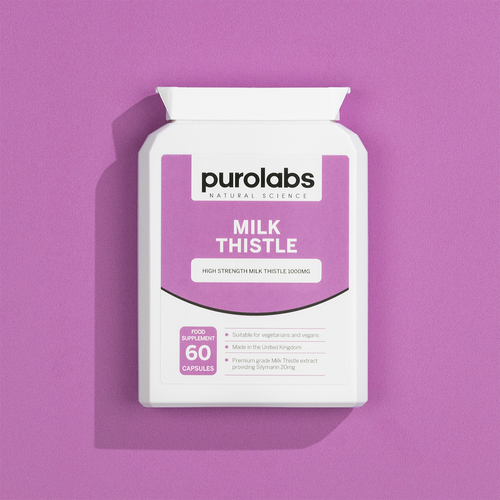
Milk Thistle
Therapeutic doses are concentrated, and measured for efficacy, whereas food form milk thistle cannot provide a regulated form of silymarin.
How to Take Milk Thistle
Milk thistle looseleaf tea can be prepared by steeping the leaves in hot water for 5-10 minutes and draining them before consuming. As mentioned, whilst some may enjoy the taste, there aren’t conclusive studies to support the therapeutic effects of milk thistle tea.
Milk thistle is most commonly taken in capsule form to provide a regulated and consistent concentration of silymarin. Whilst there isn’t government recommended intake, a daily dose of milk thistle has been recommended between 600-1,000mg.
Whilst milk thistle can be taken any time of the day, we recommend that it is taken with a meal to help improve absorption, along with reaping the benefits of milk thistle digestion improving properties.

 Beauty
Beauty
 Bone Health
Bone Health
 Brain Health
Brain Health
 Energy
Energy
 Eye Health
Eye Health
 Gut Health
Gut Health
 Hair
Hair
 Hormonal Health
Hormonal Health
 Heart Health
Heart Health
 Immunity
Immunity
 Joints
Joints
 Menopause
Menopause
 Pregnancy
Pregnancy
 Kids
Kids
 Sleep
Sleep
 Stress & Mood
Stress & Mood





